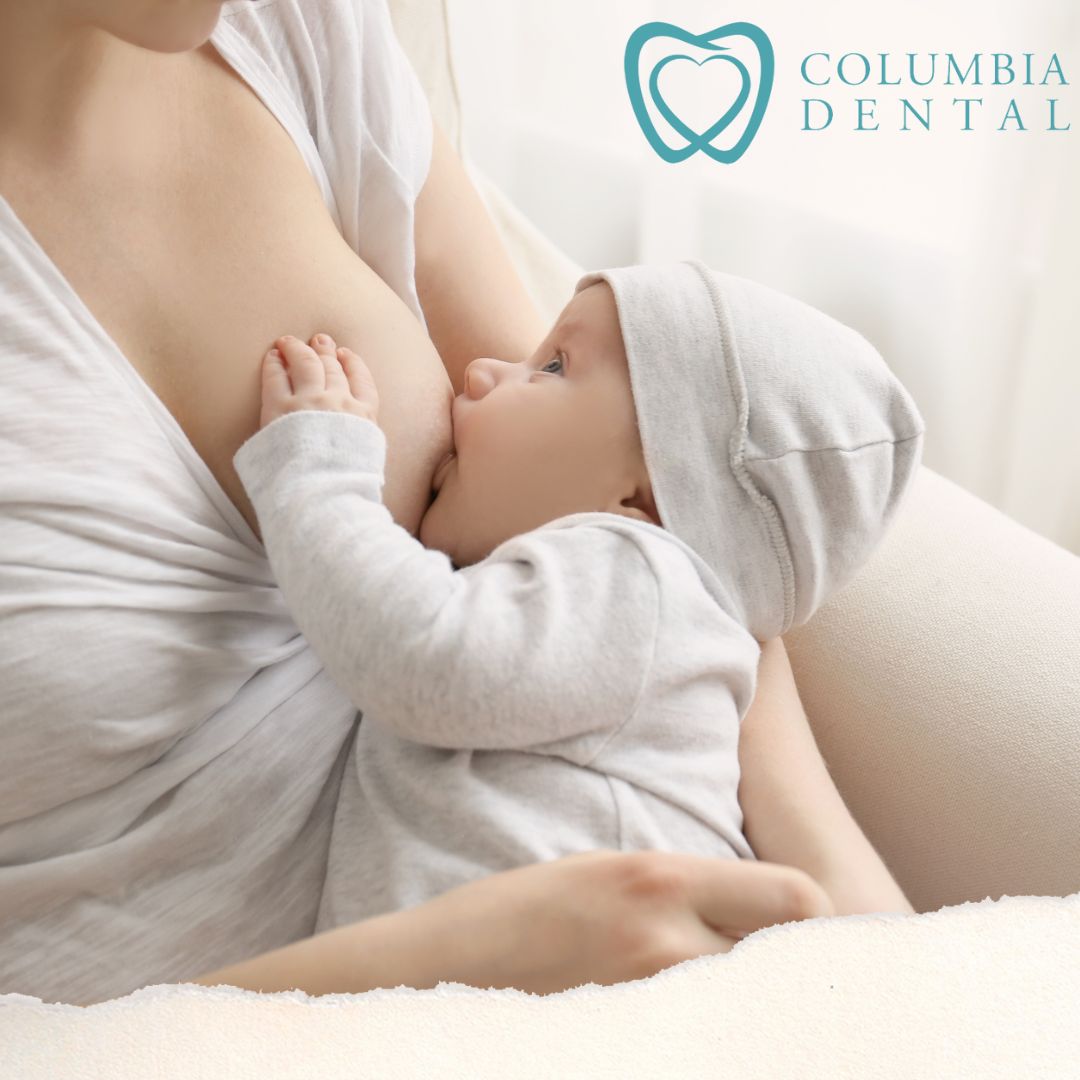Breastfeeding and Children’s Teeth and Tooth Decay…

Does Breast Milk Cause Tooth Decay In Kids?
The short answer is NO!!! But what we can say is that tooth decay is caused within babies is the common night bottle Mom and Dad throw into the baby crib. When little children are given a bottle of milk left lodged inside of their mouths while they are sleeping peacefully, the milk can become the culprit as it slowly pours onto the teeth causing the process of decaying.
With breastfeeding your baby the milk does not linger in the mouth and is swallowed by the baby as they continuously suck. Also you can consider that the breast milk enters the baby’s mouth from behind the teeth, so in this dynamic it really does not have a thing to do with tooth decay.

A child that is breastfed is far less likely to suffer from teeth that are crooked and the longer the child is breastfed the greater the reduction in risk the child will need braces in the future. A breastfed baby will most likely develop whiter color teeth due to less fluoride.
Does breastfeeding affect a baby’s teeth?
Breast milk like water in this study is near mirror images and did not cause tooth decay, in fact breast milk has been proven to make teeth healthier. A majority of infantile cavity syndrome are the cause and an outcome of supplemental foods, sugars, and alternative substances other than breast milk.
Why are my 2 year old’s teeth decaying?
What causes tooth decay in a toddler? Tooth decay is caused by bacteria primarily. It can happen when foods containing sugars and starches are left on the teeth. Such foods include milk, soda, raisins, candy, cake, fruit juices, cereals, and bread. This is why it is important to clean the teeth and not blame natural breast feeding.
Should I stop breastfeeding when baby teeth?
There’s no need to stop. Teething should not have much effect on your nursing relationship in reality. In fact, your child might need comfort when their gums are hurting, and your breast has been their greatest source of comfort until now.

How breastfeeding affects your child’s oral health?
Breast milk contains antibodies that help fight back against harmful bacteria in the mouth which help prevent tooth decay. This antibiotic effect of antibodies helps to counteract the effect of tooth decay to help children maintain a healthy smile.
Long-term breastfeeding leads to more cavities, study says
Yes, children who are breastfed for two years or more are more likely to have cavities, according to a study published in the journal Pediatrics. Researchers analyzed breastfeeding behaviors and sugar consumption for 1,129 children in Pelotas, Brazil. At age 5, the children visited a dentist, and were examined for decayed, missing and filled primary tooth surfaces and severe early childhood caries, or severe cavities. Severe early childhood caries were defined as six or more decayed, missing and filled primary tooth surfaces.

Among the children in the study, 23.9% had severe cavities and 48% had at least one tooth surface affected by a cavity. Kids who were breastfed for two years or longer had a 2.4 times higher risk of having severe cavities, compared to kids who were breastfed for less than a year.
After your child gets teeth, they can get this bacterium through salivation to salivation contact from mother to child. To assist with forestalling the move of these microscopic organisms to the child, keep away from any salivation to spit contact like sharing spoons and cups, wet kisses on the mouth, biting nourishment for the child, or placing the child’s pacifier in your mouth.
If you’re a new mother and have concerns over your baby’s forming teeth, call us today. And after 2 years of age; it’s time to stop breastfeeding your baby.

